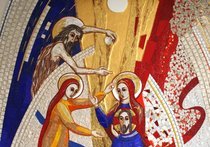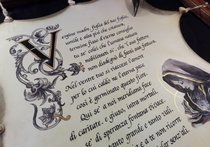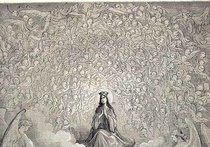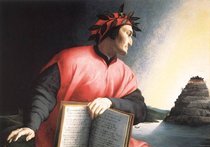Feast of the Visitation: Prayer to the Virgin Mother
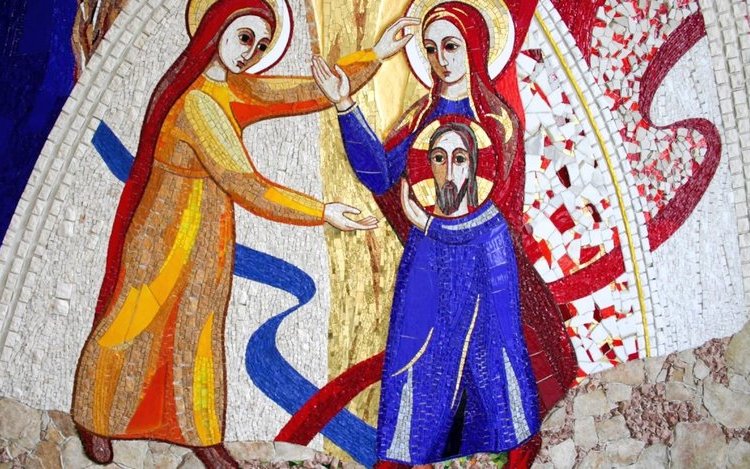
On this feast of the Visitation of Mary, which closes the month dedicated to Her, we offer you the famous prayer to the Virgin Mother composed by Dante Alighieri.
We are in Canto XXXIII of Paradise,
the hundredth and last of the Divine Comedy.
Here we meet Saint Bernard who, in the name of Dante,
raise this wonderful prayer to the Virgin Mary.
‘Virgin Mother, Daughter of thy Son,
humble and high beyond all other creature,
the limit fixed of the Eternal Counsel,
‘thou art the one who such nobility
to human nature gave, that its Creator
did not disdain to make himself its creature.
‘Your womb relit the flame of love —
its heat has made this blossom seed
and flower in eternal peace.
‘To us you are a noonday torch of charity,
while down below, among those still in flesh,
you are the living fountainhead of hope.
‘Lady, you are so great and so prevail above,
should he who longs for grace not turn to you,
his longing would be doomed to wingless flight.
‘Your loving kindness does not only aid
whoever seeks it, but many times
gives freely what has yet to be implored.
‘In you clemency, in you compassion,
in you munificence, in you are joined
all virtues found in any creature.
Dante Alighieri (Florence, 1265 - Ravenna, 1321),
Divine Comedy, Paradis, canto XXXIII (verses 1 to 21)
In celebrating the Mystery of the Incarnation, the source of salvation and joy for all humanity, Dante cannot but sing the praises of Mary, the Virgin Mother who, by her fiat, her full and total acceptance of God’s plan, enabled the Word to become flesh. In Dante’s work, we find a splendid treatise of Mariology. With sublime lyricism, particularly in the prayer of Saint Bernard, the poet synthesizes theology’s reflection on the figure of Mary and her participation in the mystery of God. The opening oxymoron and the subsequent flood of contrasts celebrate the uniqueness of Mary and her singular beauty… References to Mary abound in the Divine Comedy. In the Purgatorio, at every step of the way she embodies the virtues opposed to the vices; she is the morning star who helps the poet to emerge from the dark forest and to seek the mountain of God; the invocation of her name, “The name of that fair flower I e’er invoke Morning and evening…” (Par. XXIII, 88-89), prepares the pilgrim for the encounter with Christ and the mystery of God.
pape Francis, Apostolic Letter Candor lucis æternæ (nr. 7),
on the Seventh Centenary of the death of Dante Alighieri (March 25, 2021)




